

Welcome to Maxcell Biotics
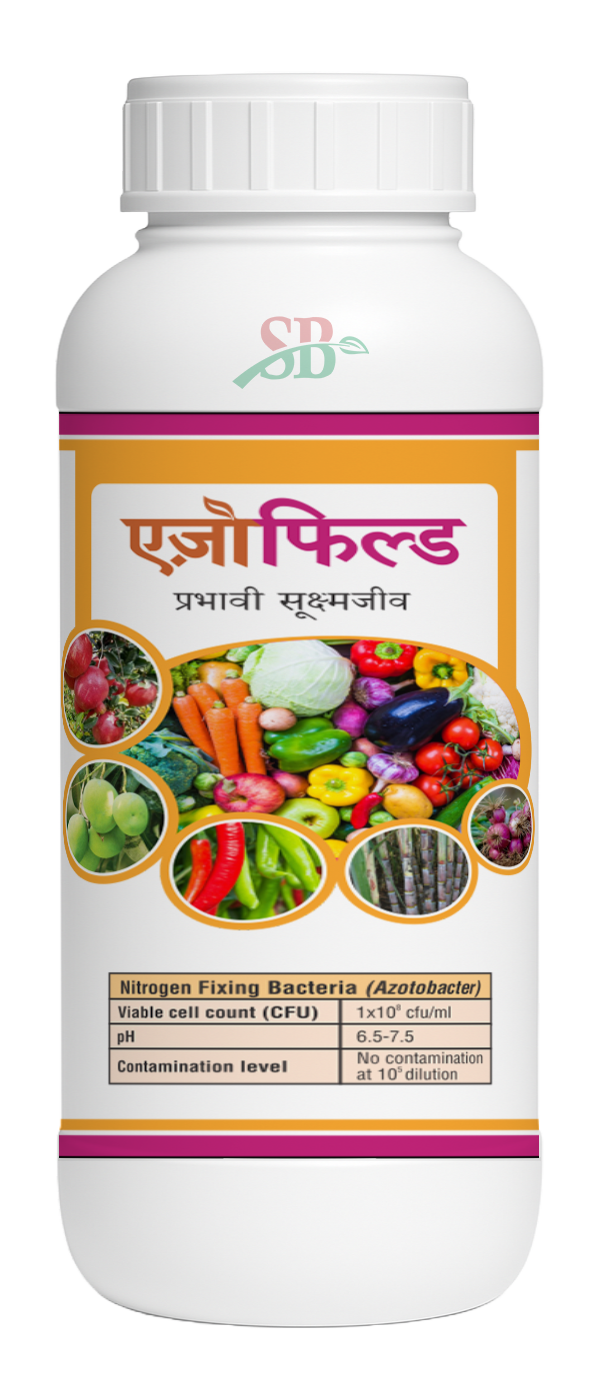


Active ingredients :- Azotobacter
| Available Pack Sizes | |
|---|---|
| Available Pack Sizes | |
|---|---|
| Liquid Formulation (1 x 108 cfu/ml) | 1L, 5L, 20L, 200L |
It is an effective microbial formulation that allows atmospheric nitrogen fixation, phosphate solubilizing, and potash mobilizing actions when applied to fields. It provides proper balanced nutrient availability for the plants. It converts many highly dense fixed nutrients and free, ready to use available forms.
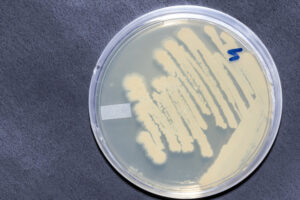
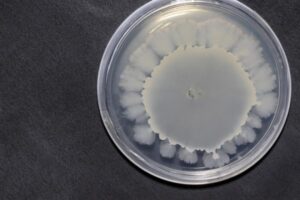
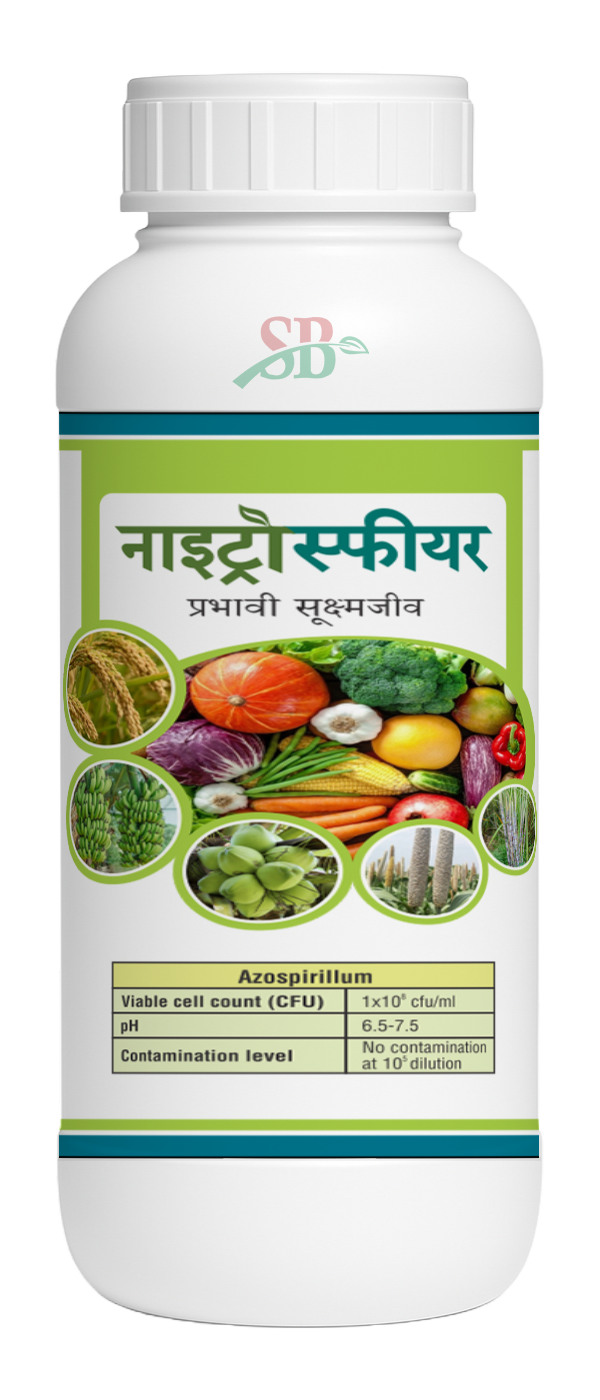


Nitrosphere contains Azospirillum spp., a nitrogen-fixing bacterium that converts atmospheric nitrogen into a usable form for plants, enhancing nitrogen availability naturally. The product stimulates root proliferation and development by producing phytohormones like IAA, improving nutrient and water uptake efficiency…
Active ingredient: Azospirillum
| Available Pack Sizes | |
|---|---|
| Available Pack Sizes | |
|---|---|
| Liquid Formulation (1 x 108 cfu/ml) | 1L, 5L, 20L, 200L |
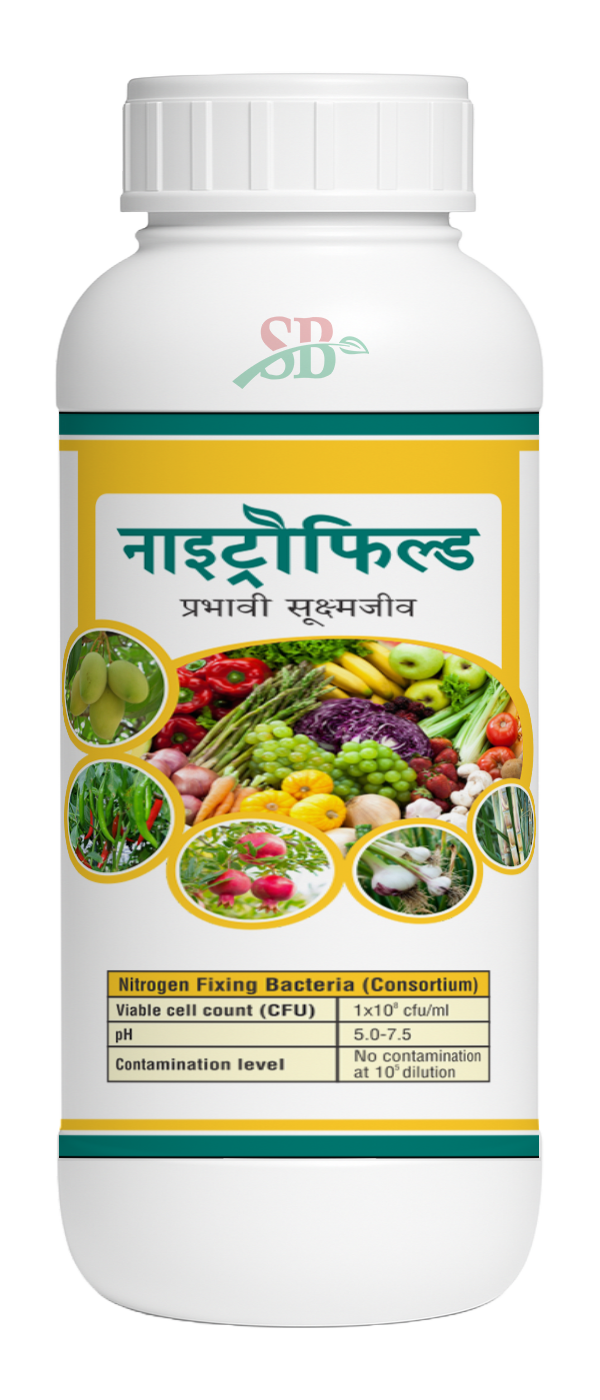

Nitrofield is a biological product designed to enhance soil fertility through a powerful microbial consortia consisting of Rhizobium and Azotobacter. Both of these microorganisms are known for their nitrogen-fixing abilities, making Nitrofield a highly effective bio-fertilizer for improving soil nitrogen levels and boosting crop growth.
…
Active ingredient: Rhizobium and zotobacter
| Available Pack Sizes | |
|---|---|
| Liquid Formulation (1 x 108 cfu/ml) | 1L, 5L, 20L, 200L |
It is an effective microbial formulation comprising of Nitrogen fixing bacteria’s such as Rhizobium, azotobacter and azospirillum
1 X 108 cfu per gram
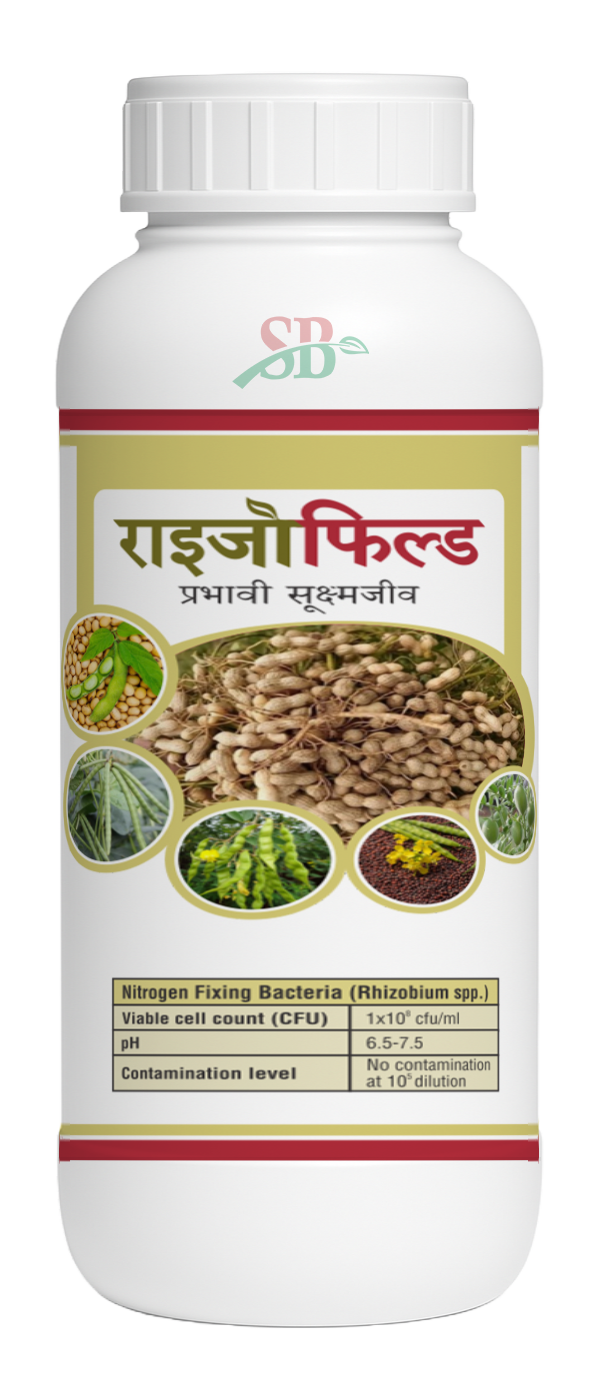

Active ingredient: Rhizobium spp.
| Available Pack Sizes | |
|---|---|
| Liquid Formulation (1 x 108 cfu/ml) | 1L, 5L, 20L, 200L |
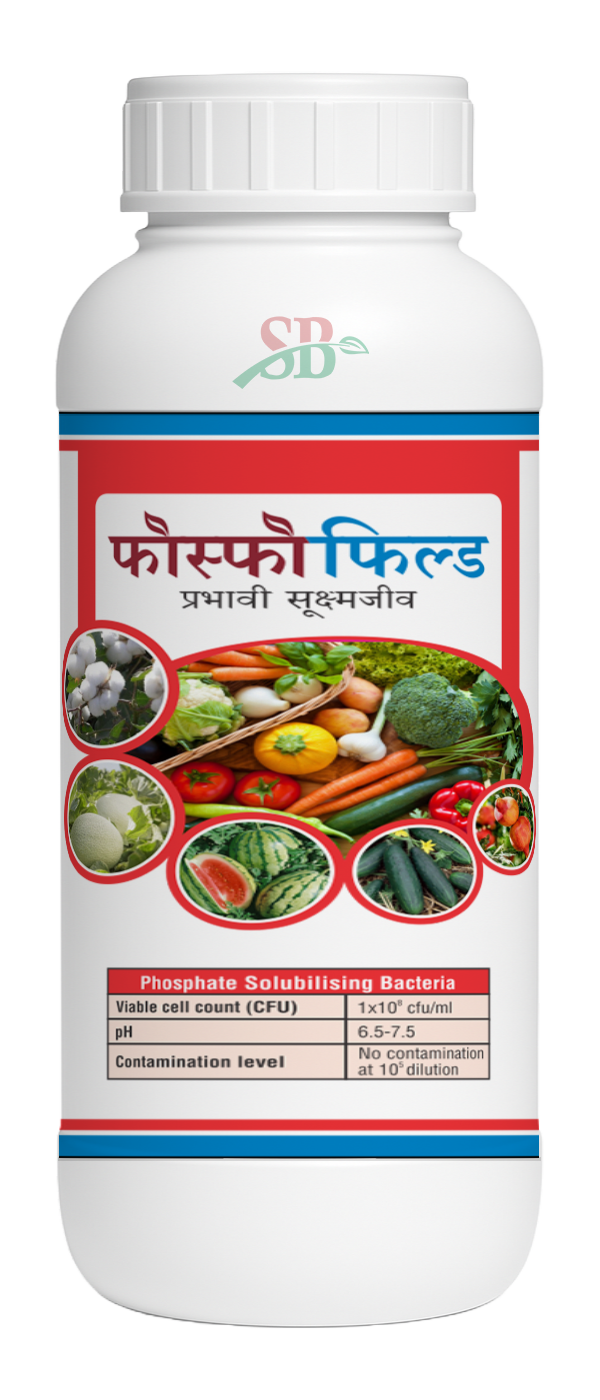

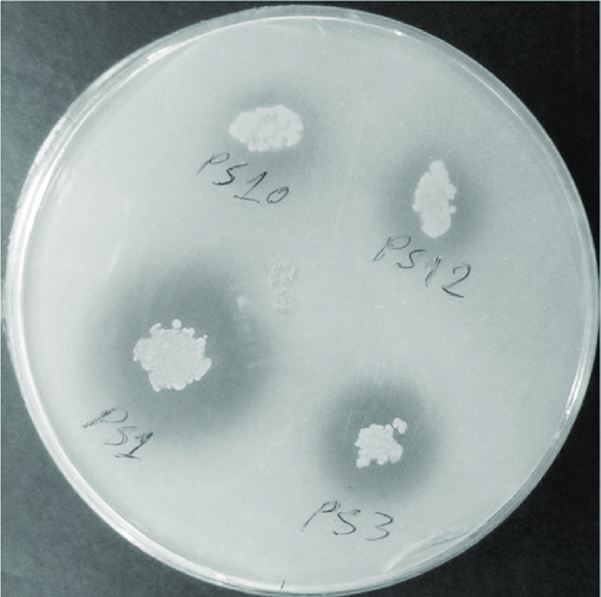
Phosphofield is a biological product that contains phosphate solubilizing bacteria (PSB), designed to enhance phosphorus availability in soil for agricultural crops. Phosphorus is a vital nutrient for plant growth, but much of the phosphorus in soil is in an insoluble form that plants cannot absorb.…
Active ingredient: Phosphate Solubilizong Bacteria –
| Available Pack Sizes | |
|---|---|
| Liquid Formulation (1 x 108 cfu/ml) | 1L, 5L, 20L, 200L |
Enhanced Phosphorus Uptake:
Solubilizes unavailable phosphorus, improving plant nutrient absorption and efficiency.
Stronger Root Growth:
Promotes robust root development through better phosphorus availability.
Higher Yields:
Supports healthier plant growth, resulting in improved crop productivity and quality.
Sustainable & Eco-Friendly:
Reduces dependency on chemical fertilizers, enhances soil health, and supports environmentally responsible farming.
It is an effective microbial formulation consisting of phosphate solubilizing bacteria. These bacteria convert the insoluble phosphates into usable form by plants. PSB plays an important role to make phosphorous available as a nutrient amongst others in the rhizosphere.
1 X 108 cfu per gram
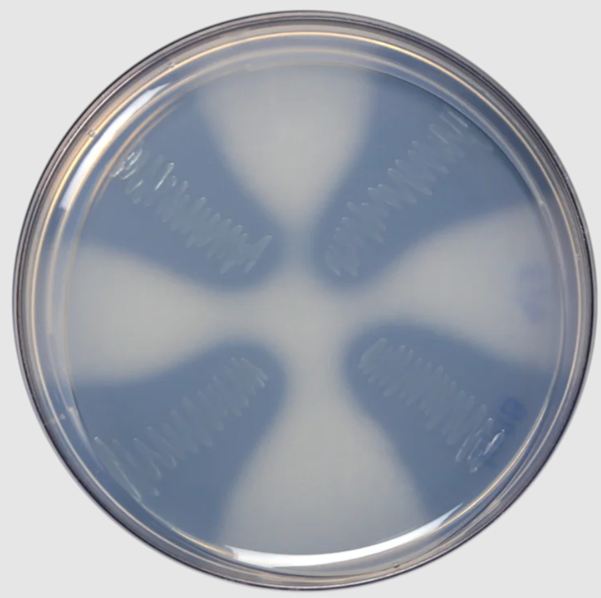
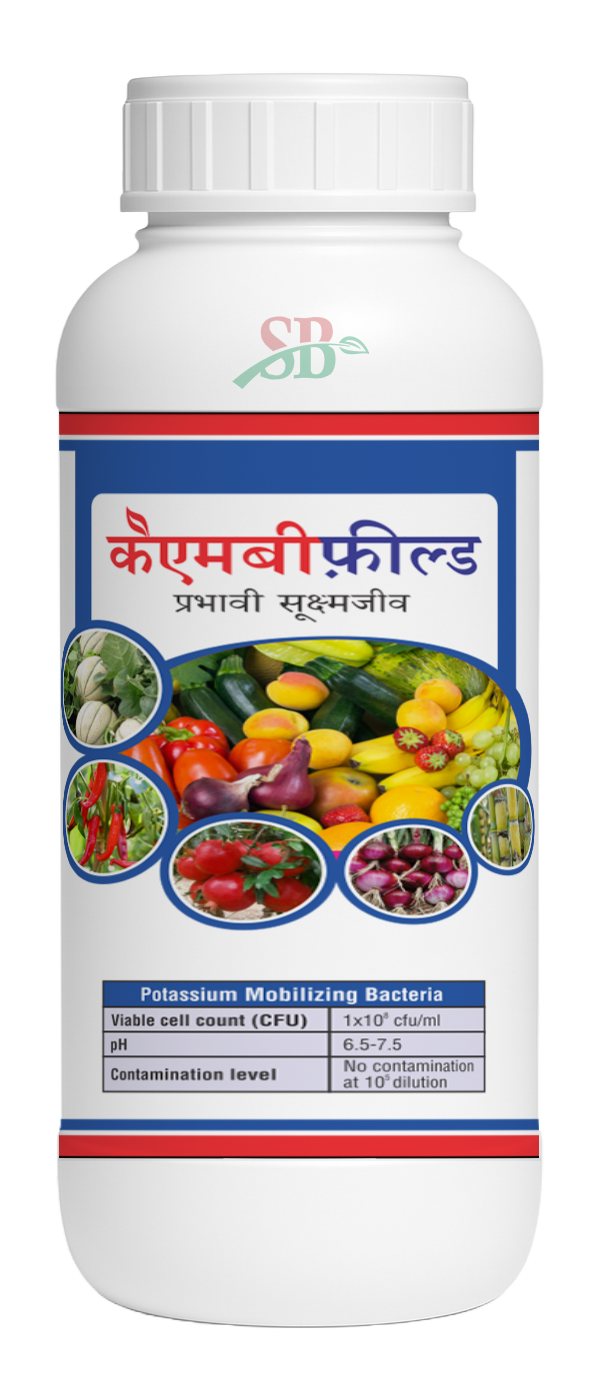
Active ingredient: Potassium Mobilizing Bacteria
KMB Field is a biological soil amendment that contains a potent strain of Potassium Mobilizing Bacteria (KMB). This innovative product is designed to enhance the availability of potassium in the soil, a vital nutrient for plant growth. The potassium-mobilizing bacteria present in KMB Field break down bound potassium, making it more accessible to plants, thereby improving their nutrient uptake, overall health, and productivity. This product is ideal for use in agricultural fields, promoting healthy crop growth, increasing yield, and optimizing potassium utilization.
| Available Pack Sizes | |
|---|---|
| 1L | 5L |
| 20L | 200L |
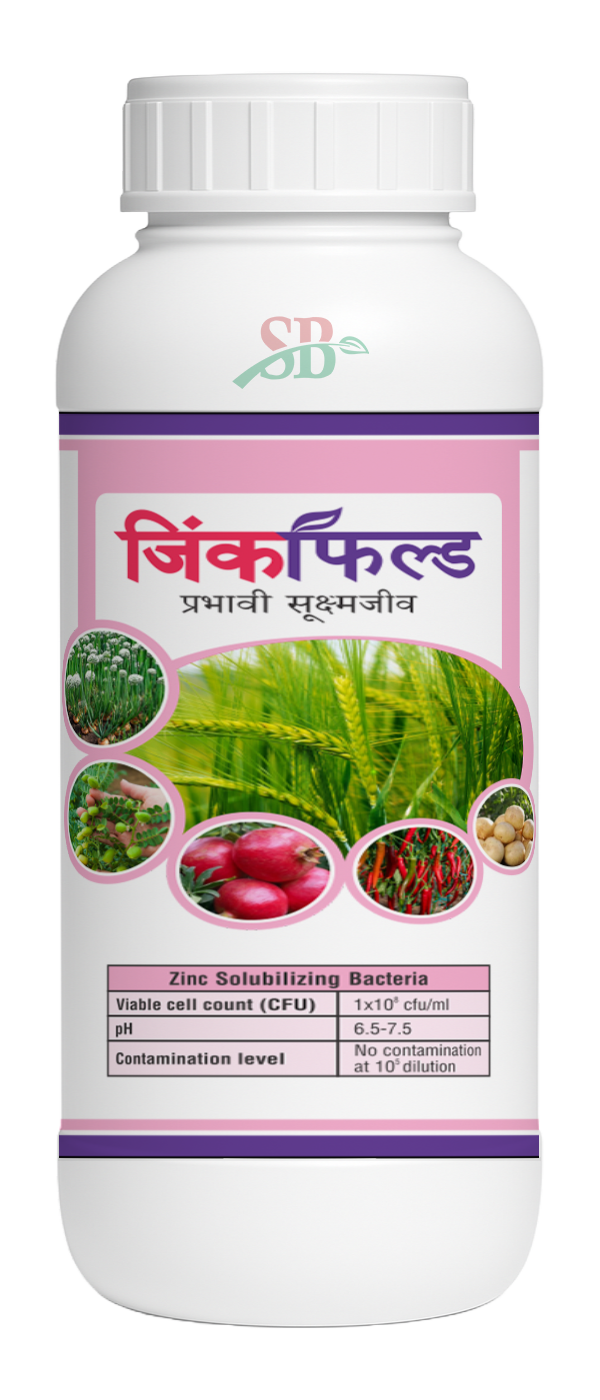

Active ingredient: Zinc Mobilizing Bacteria
Zn Field is a cutting-edge biological soil enhancer that contains Zinc Mobilizing Bacteria (ZMB). This specialized product is designed to optimize the availability of zinc, an essential micronutrient for plants, by converting zinc from insoluble forms into plant-accessible forms.
…
| Available Pack Sizes - Liquid Formulation (1 x 108 cfu/ml) | |
|---|---|
| 1L | 5L |
| 20L | 200L |
Oil Seeds | Groundnut (Peanut), Soybean, Mustard, Sunflower, Safflower, Sesame |
Spices | Turmeric, Ginger, Garlic, Fenugreek (Methi) |
Vegetables and Fruits | Tomato, Potato, Brinjal (Eggplant), Cabbage, Cauliflower, Carrot, Onion, Cucumber, Watermelon, Banana, Mango, Papaya |
Grains and Pulses | Wheat, Rice, Maize (Corn), Sorghum, Pearl Millet (Bajra), Finger Millet (Ragi), Chickpea, Pigeon Pea (Arhar/Tur), Green Gram (Moong), Black Gram (Urad), Lentil, Cowpea |
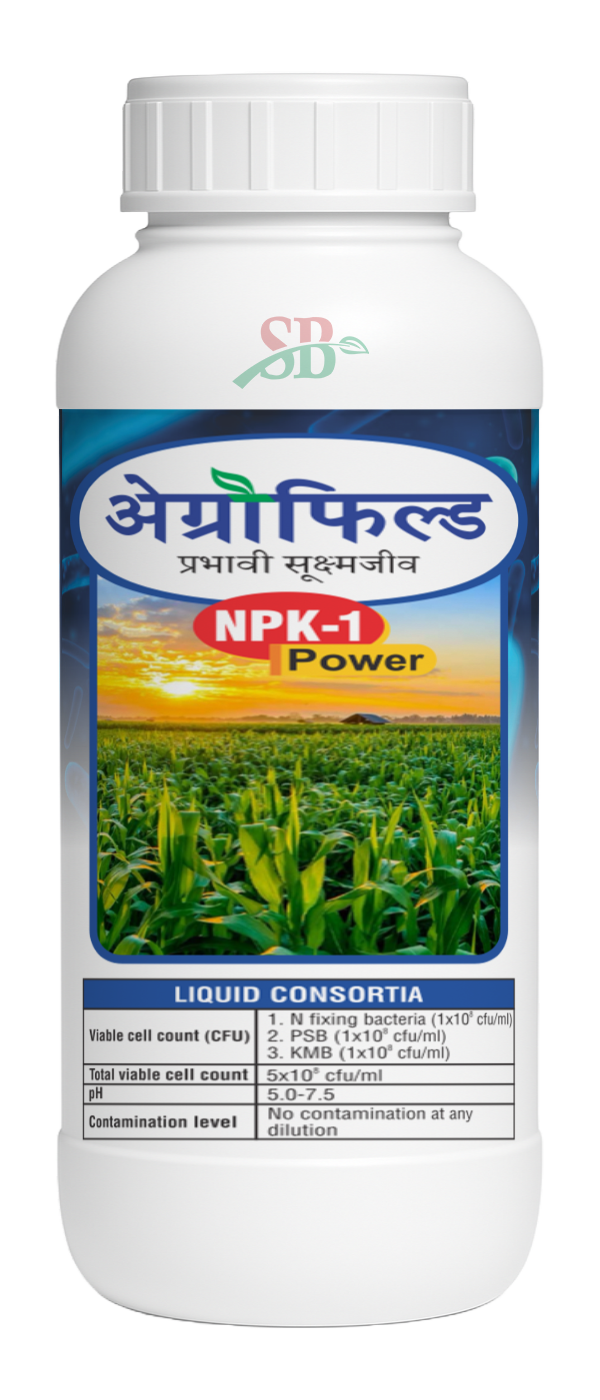
Active ingredient: Consortia of NPK Bacteria
Agro Field is a powerful biological soil enhancer containing a specialized NPK Consortia of Bacteria. This unique formulation combines a consortium of microorganisms that work synergistically to break down organic matter and release essential nutrients—Nitrogen (N), Phosphorus (P), and Potassium (K)—into plant-available forms. The beneficial bacteria in Agro Field enhance nutrient cycling in the soil, promoting optimal growth, development, and yield for a wide variety of crops.
…
| Available Pack Sizes - Liquid Formulation (1 x 108 cfu/ml) | |
|---|---|
| 1L | 5L |
| 20L | 200L |
